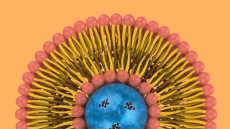Vegan diet requires omega-3 and B12 boost: Study
The review authors said that although meat eaters are known for having a significantly higher combination of cardiovascular risk factors than vegetarians, people following strict vegetarian and vegan diets are not immune from risk, as their diets tend to lack several key nutrients, including iron, zinc, vitamin B12, and omega-3.
Published in the Journal of Agricultural and Food Chemistry, the reviewsuggests that following a vegan lifestyle that is low in omega-3 and vitamin B12, may have a high risk of developing blood clots and atherosclerosis – both of which increase the risk for heart attacks and stroke. As such, the authors suggest that an increased intake or supplementation of omega-3 polyunsaturated fatty acids and vitamin B12 may help to alleviate such risks.
“On the basis of the present data, it is suggested that vegetarians, especially vegans, could benefit from increased dietary intake of omega-3 PUFA and vitamin B12 and thus improve the balance ratio of omega-3 to omega-6 PUFA and vitamin B12 status … which may reduce any thrombotic tendency that might increase their generally low risk of cardiovascular disease,” said the review author, Duo Li from Zhejiang University, China.
Review details
The review of over 30 years of studies for the biochemistry of vegetarianism noted that meat-eaters are known to have a significantly higher incidence of certain cardiovascular risk factors compared with vegetarians.
Such risks include increased body mass index, waist to hip ratio, blood pressure, plasma total cholesterol, triacylglycerol levels, and serum lipoprotein concentration.
However, Li said that compared with meat-eaters, vegetarians and vegans have lower concentrations of serum vitamin B12 and omega-3 polyunsaturated fatty acid levels in tissue membrane phospholipids.
Previous evidence has suggested vegetarians and vegans who do not take vitamin B12 supplements often may have abnormally low serum concentrations of vitamin B12, which has been shown to significantly correlate with plasma homocysteine levels.
Li said that the risks associated with low vitamin B12 and omega-3 status include an increase in blood clotting (platelet aggregation) from, raised levels of homocysteine, and decreased levels of ‘good’ HDL-cholesterol – all of which may be linked to an increased thrombotic and atherosclerotic risk.
As a result Li concluded that “it is suggested that vegetarians, especially vegans, should increase their dietary omega-3 PUFA and vitamin B12 intakes.”
Despite the fact that vegan diets exclude any foods from animal origin, in his recommendations Li outlined several sources of dietary omega-3 and vitamin B12 sourced from animals; though he did add that “dietary supplements also can supply these nutrients”.
Source: Journal of Agricultural and Food Chemistry
Volume 59, Issue 3, Pages 777 – 784, doi: 10.1021/jf103846u
“Chemistry behind Vegetarianism”
Author: D. Li
Disclaimer: This article has been corrected after it was pointed out that we had incorrectly stated that a vegan diet increased collagen, in fact we should have reported that the risk of blood clotting (platelet aggregation) was increased.














